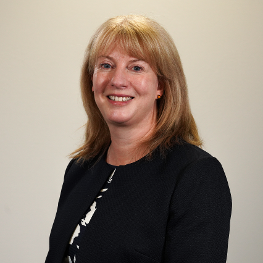
11:49 AM, 29th November 2021, About 3 years ago
Text Size
Foreword below by Shona Robison MSP, Cabinet Secretary for Social Justice, Housing and Local Government. Click here to see full details of the consultation
We are legislating to establish a short-term lets licensing scheme across Scotland. The purpose of the licensing scheme is: to ensure short-term lets are safe and address issues faced by neighbours; to facilitate licensing authorities in knowing and understanding what is happening in their area; and to assist with handling complaints effectively.
Subject to the approval of the Scottish Parliament, the licensing legislation will come into force on 1 March 2022. However, local authorities will have until 1 October 2022 to establish a licensing scheme in their area and open it to receive applications. Existing hosts and operators will have until 1 April 2023 to apply for a licence and be able to continue operating whilst their licence application is processed. All short-term lets will require to be licensed by 1 July 2024.
Whilst many of the points raised were familiar from previous consultations, there were some points that required careful consideration. Some were questioning the competency of the legislation. We have taken the time needed to review all the consultation responses carefully to address genuine stakeholder concerns.
As part of this process, I wrote to the Local Government, Housing and Planning Committee on 7 October 2021 outlining pragmatic and significant changes to the licensing scheme. These changes respond to concerns and issues raised with me during the consultation process and through engagement with stakeholders. This report recaps those changes but also sets out the other changes emerging from the consultation process.
This government has always stressed striking the balance between the needs of local communities and wider economic and tourism interests. The licensing scheme sets out mandatory safety standards, which many hosts will already be following to comply with existing law or as a matter of best practice. I am keen to see every short-term let in Scotland meet these basic standards, for the sake of guests, hosts, neighbours and communities.
Where there are other problems, such as noise, nuisance, littering, antisocial behaviour, the loss of residential housing stock and adverse impact on local communities, the licensing scheme and control area legislation together give local authorities the powers to address these. The specific issues vary across Scotland, across both rural and urban areas, and we expect local authorities to use the powers they have been given to do no more or less than necessary to tackle them.
We have committed to monitoring and evaluating the impact of our proposals to ensure that they are effective and targeted.
The first indications of future activity will emerge in April 2023, as all existing operators will need to have submitted an application for a licence by 1 April 2023 in order to continue operating. We will work with local authorities to review levels of short-term let activity in hotspot areas in summer 2023. This review will identify whether any further measures are required to control numbers but also seek to confirm that the wider sector is still healthy, making sure we have avoided unintended consequences.
Over the winter, we will reconvene the stakeholder working group to finalise the guidance on the licensing scheme. I look forward to continuing constructive engagement with the stakeholder working group to do this and prepare for implementation in 2022.
Shona Robison MSP
Cabinet Secretary for Social Justice, Housing and Local Government
Previous Article
Is it worth it after CGT?